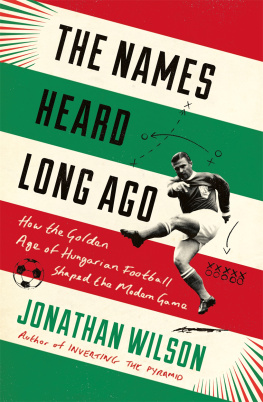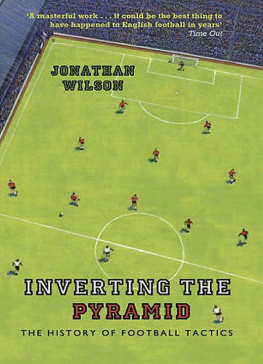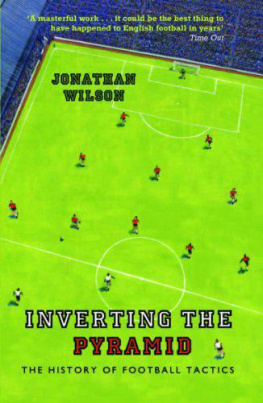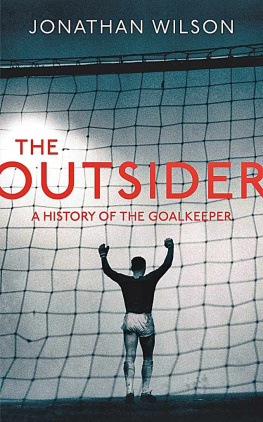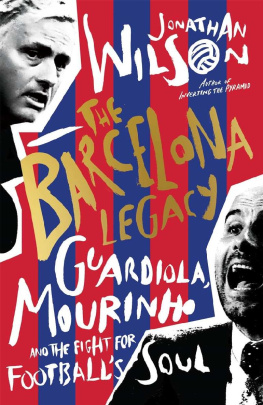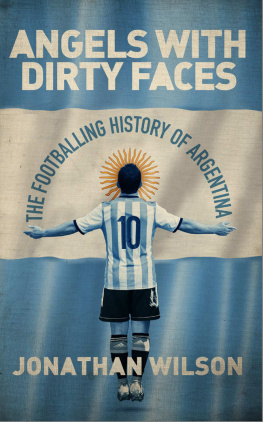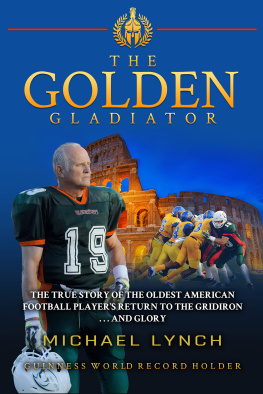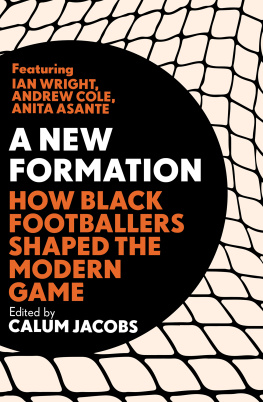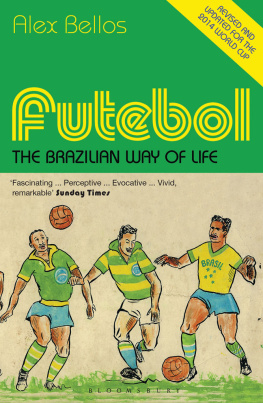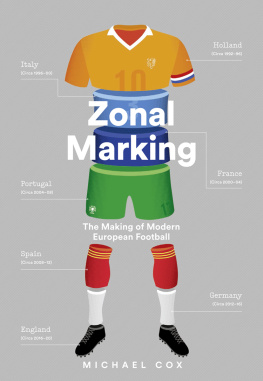Jonathan Wilson - The Names Heard Long Ago: How the Golden Age of Hungarian Football Shaped the Modern Game
Here you can read online Jonathan Wilson - The Names Heard Long Ago: How the Golden Age of Hungarian Football Shaped the Modern Game full text of the book (entire story) in english for free. Download pdf and epub, get meaning, cover and reviews about this ebook. year: 2019, publisher: Blink Publishing, genre: History. Description of the work, (preface) as well as reviews are available. Best literature library LitArk.com created for fans of good reading and offers a wide selection of genres:
Romance novel
Science fiction
Adventure
Detective
Science
History
Home and family
Prose
Art
Politics
Computer
Non-fiction
Religion
Business
Children
Humor
Choose a favorite category and find really read worthwhile books. Enjoy immersion in the world of imagination, feel the emotions of the characters or learn something new for yourself, make an fascinating discovery.
- Book:The Names Heard Long Ago: How the Golden Age of Hungarian Football Shaped the Modern Game
- Author:
- Publisher:Blink Publishing
- Genre:
- Year:2019
- Rating:3 / 5
- Favourites:Add to favourites
- Your mark:
- 60
- 1
- 2
- 3
- 4
- 5
The Names Heard Long Ago: How the Golden Age of Hungarian Football Shaped the Modern Game: summary, description and annotation
We offer to read an annotation, description, summary or preface (depends on what the author of the book "The Names Heard Long Ago: How the Golden Age of Hungarian Football Shaped the Modern Game" wrote himself). If you haven't found the necessary information about the book — write in the comments, we will try to find it.
Jonathan Wilson: author's other books
Who wrote The Names Heard Long Ago: How the Golden Age of Hungarian Football Shaped the Modern Game? Find out the surname, the name of the author of the book and a list of all author's works by series.
The Names Heard Long Ago: How the Golden Age of Hungarian Football Shaped the Modern Game — read online for free the complete book (whole text) full work
Below is the text of the book, divided by pages. System saving the place of the last page read, allows you to conveniently read the book "The Names Heard Long Ago: How the Golden Age of Hungarian Football Shaped the Modern Game" online for free, without having to search again every time where you left off. Put a bookmark, and you can go to the page where you finished reading at any time.
Font size:
Interval:
Bookmark:

THE NAMES HEARD LONG AGO
Also by Jonathan Wilson
Behind the Curtain: Travels in Eastern European Football
Sunderland: A Club Transformed
Inverting the Pyramid: The History of Football Tactics
The Anatomy of England: A History in Ten Matches
Brian Clough: Nobody Ever Says Thank You
The Outsider: A History of the Goalkeeper
The Anatomy of Liverpool: A History in Ten Matches
Angels with Dirty Faces: The Footballing History of Argentina
The Anatomy of Manchester United: A History in Ten Matches
The Barcelona Legacy: Guardiola, Mourinho and the Fight For Footballs Soul
JONATHAN WILSON

Published by Blink Publishing
2.25, The Plaza,
535 Kings Road,
Chelsea Harbour,
London, SW10 0SZ
www.blinkpublishing.co.uk
facebook.com/blinkpublishing
twitter.com/blinkpublishing
Hardback 978-1-788-702-26-3
Ebook 978-1-788-702-73-7
All rights reserved. No part of the publication may be reproduced, stored in a retrieval system, transmitted or circulated in any form or by any means, electronic, mechanical, photocopying, recording or otherwise, without prior permission in writing of the publisher.
A CIP catalogue of this book is available from the British Library.
Designed and set by seagulls.net
Map on Phoenix Mapping
Copyright Jonathan Wilson, 2019
Jonathan Wilson has asserted his moral right to be identified as the author of this Work in accordance with the Copyright, Designs and Patents Act 1988.
Every reasonable effort has been made to trace copyright holders of material reproduced in this book, but if any have been inadvertently overlooked the publishers would be glad to hear from them.
Blink Publishing is an imprint of Bonnier Books UK
www.bonnierpublishing.co.uk
For Mam
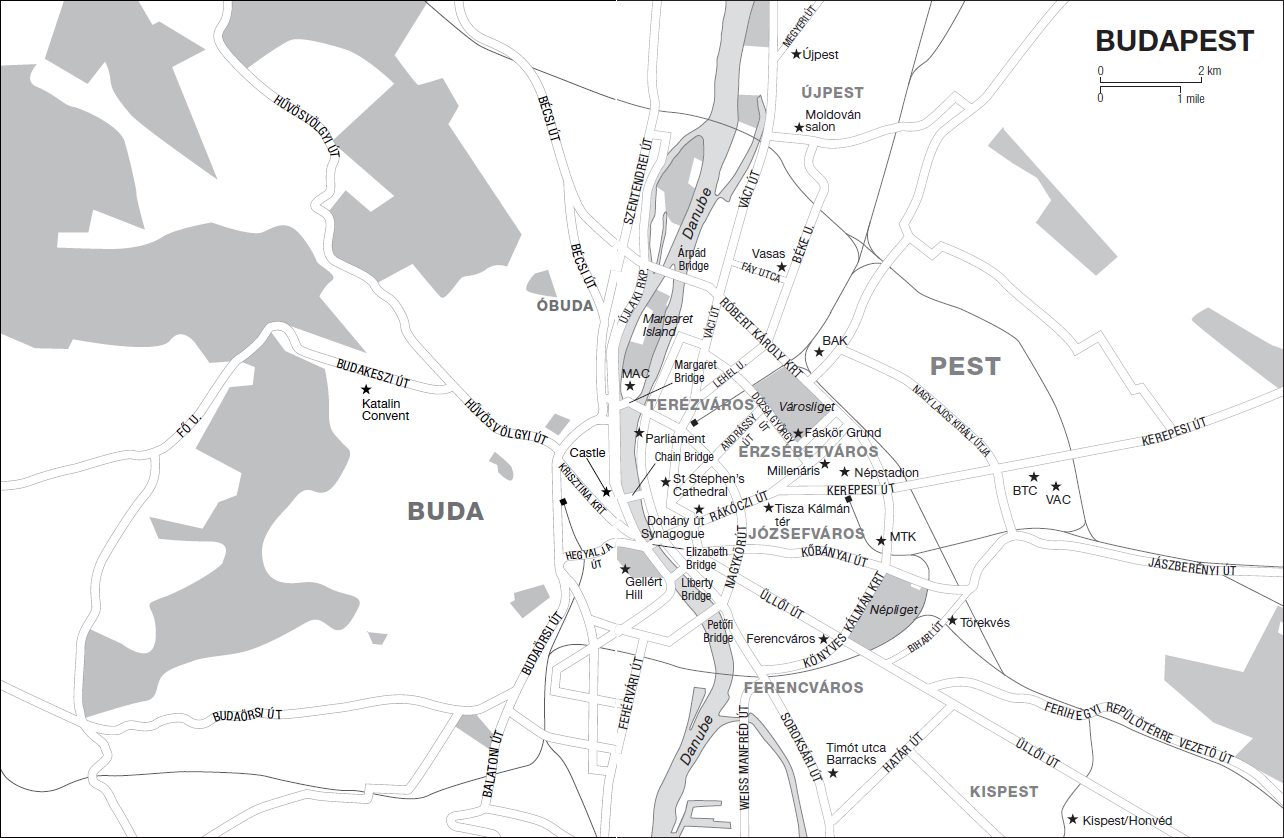
A NOTE ON NAMES
Many of the cities referred to here have undergone multiple changes of name, or are known by different names in different languages. Where there is a common English name I have used that; otherwise, unless there is good reason not to, I have gone with the name it is currently known by in the country where it is now located, providing the Hungarian alternative in parentheses.
With clubs, unless there is a commonly used English variant e.g., Bayern Munich I have used the local name, so FC Nrnberg are the team from Nuremberg and FC Hannover 96 play in Hanover.
A bright October morning in the Kozma utca cemetery in the east of Budapest. The leaves are copper, the sky clear. A grave-keeper gives us a lift to the plot were looking for, a mile or more back from the road. Nobody comes to this part of the cemetery much any more. The paths are overgrown to the point that this feels like woodland. Branches claw at the sides of the van. We stop, and the grave-keeper points vaguely into the trees. There is a suggestion of a path, but the grass comes to shin height and we have to duck under a fallen branch. Every now and again, a slight raise in the ground or an angular stone hints at what this land is. Eventually, 50 or 60 yards from the main path, we come to a headstone so swathed in ivy that if you werent looking for it you could easily think it was a tree stump. The gravekeeper wrenches the leaves aside. Its not the one were looking for.
Wed asked in the cemetery office and, after a quick search on the computer, been given a number. There was the plot, and then two other numbers: how many rows back and how many rows across the grave was. Even near the gate, that was of limited use because it wasnt clear from which corner the numbering started; out in the woodland, the reference was a hint, nothing more. We were also shown the burial card, a rectangle of ancient brown paper, perhaps three inches by two: Pter Pl Hirschl, died 7 July 1940, buried 9 July 1940. It seemed likely nobody had looked at it for 78 years.
We walked on and came to another headstone, the ivy so thick upon it the branches were half an inch or more in diameter. Impatiently, the grave-keeper tore the ivy away. I saw the PL first, then the PTER. This was it:
Petikm
HIRSCHL PTER PL
LT 14 VET
MEGHALT 1940 JLIUS 7-N
Kisfiam, a viszontltsra!
HIRSCHL IMRN
Sz. BLEIER ERZSBET
18961971
Not just the grave of Pter Hirschl, but also of his mother, Erzsbet, the wife of Imre Hirschl, and the message, added after Pters death at the age of 14: My little son, until I see you again!
To my surprise, I felt a ball of emotion rise in my chest. In part perhaps it was at a life ended so young, and at two lives so thoroughly forgotten, but more than that, I think, it was a selfish feeling, another detail added in uncovering the life of a man who had obsessed me for more than a decade, more confirmation of who he was, that I was chasing somebody who had actually existed which at times, given the way Imre Hirschl seemed always to slither from my grasp, I had almost come to doubt. It was a relatively straightforward matter then, armed with dates of death and burial, to return to the archives to consult Pters death certificate and find cause of death listed as pneumonia and deterioration of the kidneys. Not much, perhaps, but another fact, another tile in the mosaic.
A curtain fell over Hungary in 1945, beyond which few ventured. Hungary is a country that has forgotten a lot of its heroes, but none have been so thoroughly forgotten in part, in his case, it must be admitted, through his own obfuscations as Imre Hirschl. He was a brilliant coach, hugely successful in South America, and yet when he left Hungary in his late twenties, he had never worked in football. He is an extraordinary figure, his life shaped by two world wars, a genius, a charmer and a rogue and yet he is one of roughly a dozen coaches of similar influence and intrigue produced by interwar Hungary.

When does a book begin? People ask how long it took you to write a book and you say a year, or 18 months or four years. From signing the contract to submitting the manuscript for this book took roughly two years but, because I was writing The Barcelona Legacy during that time, there was probably only around 14 months from beginning the research to submission. In reality, though, the book began long before that.
I first went to Budapest in 2004 when researching Behind the Curtain. I arrived by night train from, I think, Belgrade and spent my first hours there huddled in a bakery in Keleti station avoiding the junkies on the concourse and waiting for the sun to rise. But the city soon grew on me. There was something in the faded grandeur, the sense of cultures meeting, that appealed. An old girlfriend once said that I make a decision on whether I like a city or not based on whether I have a good meal in the first 24 hours Im there. Its an observation not entirely without justification and certainly Budapest passes that test: the coffee houses and restaurants are a large part of the appeal.
Font size:
Interval:
Bookmark:
Similar books «The Names Heard Long Ago: How the Golden Age of Hungarian Football Shaped the Modern Game»
Look at similar books to The Names Heard Long Ago: How the Golden Age of Hungarian Football Shaped the Modern Game. We have selected literature similar in name and meaning in the hope of providing readers with more options to find new, interesting, not yet read works.
Discussion, reviews of the book The Names Heard Long Ago: How the Golden Age of Hungarian Football Shaped the Modern Game and just readers' own opinions. Leave your comments, write what you think about the work, its meaning or the main characters. Specify what exactly you liked and what you didn't like, and why you think so.

